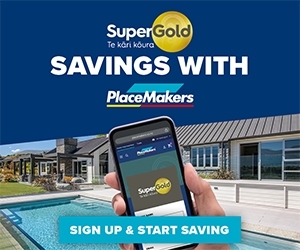 Cancer is a major health issue for New Zealanders. It’s this country’s leading cause of death and a major cause of hospitalisation.
Cancer is a major health issue for New Zealanders. It’s this country’s leading cause of death and a major cause of hospitalisation.
Every day, six Kiwis are diagnosed with a blood cancer like leukemia, lymphoma or myeloma. Each year, around 3000 women and 20 men in New Zealand are diagnosed with breast cancer, and over 2000 Kiwis are diagnosed with melanoma (a type of skin cancer). Four times as many New Zealanders die as a result of bowel cancer than in road traffic accidents. These diseases can strike anyone of any age, at any time, without warning.
Until recently, surgery, radiation and chemotherapy were the three standard treatments against cancer. However, clinical trials have shown that harnessing the body’s immune response (which evolved to fend off harmful bacteria and viruses) presents a new treatment alternative.
Targeted therapies, which include monoclonal antibodies and small molecule inhibitors, have also significantly changed the treatment of cancer. These medicines are now a vital component of therapy for many common cancers, including breast, colorectal, lung, lymphoma and leukemia.
Two out of three people are now living at least five years after their cancer has been diagnosed. Within the last decade alone, the response rates to treatments across all cancers have nearly doubled.
The Roche Group is the world’s leading provider of innovative cancer medicines, prolonging lives and significantly advancing the way some cancers are treated.
New treatments have to be assessed by government bodies as to their value and their priority over existing cancer treatments. Funding of new medicines can therefore take time as they are often put in order of priority. In addition, the budget for new treatments in New Zealand is limited.
In New Zealand, Roche has responded to the demand by patients for faster access to their registered unfunded cancer medicines by providing private patient access schemes. These access schemes provide some of the medicine free to patients during their treatment. Roche has been assisting patients in this way since 2008, and many hundreds of patients have benefitted with earlier access to cancer medicines and at a reduced cost.
![]() If you would like to find out more about Roche’s patient cancer access programmes, visit cancerinfo.co.nz. Here you will find information on a number of Roche cancer medicines that could possibly help in treating your cancer.
If you would like to find out more about Roche’s patient cancer access programmes, visit cancerinfo.co.nz. Here you will find information on a number of Roche cancer medicines that could possibly help in treating your cancer.
ID2313/TAPSNA8481/2016JUL
Roche Products (New Zealand) Ltd.
PO Box 109113, Newmarket, Auckland 1149
Ph: 0800 656 464
www.roche.co.nz










Join the Discussion
Type out your comment here:
You must be logged in to post a comment.